However much it must rankle them to give even an inch to the striking players whose selfishness has caused such embarrassment and distress to West Indies cricket, Friday’s events in the sleepy South African university town of Potchchefstroom provided further certain evidence for the hard-liners within the West Indies Cricket Board (WICB) that the present situation cannot be allowed to continue.
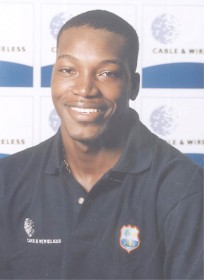
It might or might not have been coincidental but WICB president Julian Hunte announced on Friday night, immediately after an aptly titled warm-up for the Champions Trophy in which South Africa pummelled a West Indies team decimated by the absence of the strikers, that his directors had accepted Caricom’s proposals for settling its long-running row with the West Indies Players Association (WIPA).
The two bodies had carried their dispute to the head of Caricom, Guyana’s president Bharat Jagdeo, who appointed former Commonwealth Secretary General Shridath Ramphal as mediator. When he could get nowhere, relevant Caricom heads took it on themselves to intervene and offer solutions. What these now do is offer the WICB a way out of the mess.
All players would be open to selection so that the inexperienced and ill-prepared, if enthusiastic, replacement team now in South Africa won’t have to face the prospect of similarly heavy defeats in Test and ODI series in the coming year against two of the most powerful teams in the game, Australia, in Australia, and South Africa in the Caribbean.
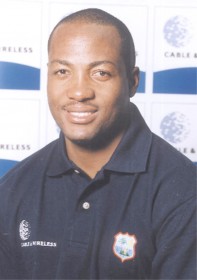
According to Joel Garner, a WICB director as president of the Barbados Cricket Association (BCA), those who fronted up against Bangladesh were retained for the Champions Trophy in South Africa as a reward for their loyalty.
“It is a case of national duty and representing the region, and I think that is an honour,” was how Garner put it, a sentiment typical of West Indies cricketers from an era of excellence and dominance.
It was a noble ideal but the opposition in South Africa is far different to what it was in the Caribbean. The Tamim Iqbals, Shakib Al Hasans, Rubel Hussain and Raqibul Hasan of Bangladesh are about to morph into the Ricky Pontings, Brett Lees, Mohammed Yousufs, Sachin Tendulkars and the likes in the Champions Trophy. The scenario would be similar in Australia and against South Africa in the Caribbean.
The Caricom recommendations, which start by stating that the heads of government “have always taken the position that the management of West Indies cricket is the province of the West Indies Cricket Board and its affiliate organisations”, also present a chance for the WICB to re-establish its authority over the game. This has faltered, more especially over the past two decades, through weak leadership and general mismanagement.
Although Hunte referred to “certain reservations” on the Caricom proposals regarding
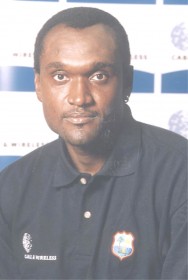
sponsor’s fee, he committed the WICB to “finding a common understanding and a satisfactory mechanism for resolving all of the issues in dispute” and said he looked forward to “a more successful resolution process.”
To précis, the expectation is that the strongest team will be available for the three Tests in Australia in November and December and forever after. Given the acrimonious relations between the WICB and the WIPA, such hope seems misplaced but it is hope all the same.
Hunte had given no previous indication of such a softening of his position in the matter. Other directors, such as Paul Campbell, president of the Jamaica Cricket Association (JCA), were clearly differently inclined.
“There is no benefit to continue on the path we’ve travelled over the past five to six months,” Campbell said.
“From a Jamaica Cricket Association standpoint, and as a director of the West Indies Cricket Board, are committed to changing that course.”
“The perception is that we’re fighting and we have to change that perception,” he added. “We have to start leading. We must recognise that the players are important, players have rights, WIPA is important.”
It was a significant shift within the WICB yet not one far removed from Hunte’s initial stance when he made WIPA’s president and chief executive Dinanath Ramnarine a director as soon as he assumed office in 2007.
Ramnarine’s resignation earlier this year and the players’ deliberate shunning of official
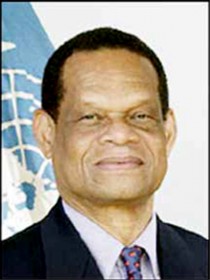
functions and, ultimately, their strike, changed Hunte’s view. He felt understandably duped.
He described the strike as “simply a case of players feeling so invincible, drunken by the numerous occasions on which they had gotten away with whatever behaviour they chose, that they can act with wanton disrespect for the game of cricket”.
He spoke of the “indiscipline and unaccountability” of several players whose actions, he charged, were “calculated to inflict maximum damage upon the WICB’s ability to manage the affairs of West Indies cricket”.
“Some have argued that this indiscipline and unaccountability should be overlooked and ignored for the sake of short term convenience,” he added. “We are concerned about the message which this sends to West Indian youth and our society in general at a time of great turbulence in West Indian society.”
Perhaps he subsequently reflected on the WICB’s role in allowing such attitudes to develop by repeatedly disregarding breaches of its code of conduct, mainly by the star players, usually for “the sake of short term convenience.”
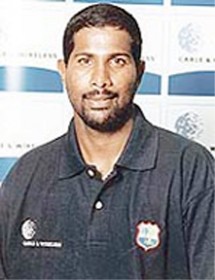
As far back as the early 1990s, Rohan Kanhai and Andy Roberts complained of players with attitude problems. They were sacked and the players stayed on.
Viv Richards was removed as selector when the WIPA wrote the WICB complaining that he and other selectors had “verbally abused and threatened” some players in public.
The agenda for the strikes that have followed in 2005 and now was set in 1998 when the players remained ensconced at a London airport, refusing to proceed to the first Test tour of South Africa until their demands were met. The WICB dismissed captain Brian Lara and vice-captain Carl Hooper and fined the remaining players only to back down under pressure. It was a decisive blow to its authority.
Season after season, offences pass without sanction from the WICB.
The on-field behaviour of both teams in the 2007 Carib Beer Cup final between Trinidad & Tobago and Barbados was so bad that Deryck Murray, the Test wicket-keeper of an earlier generation and president of the Trinidad & Tobago board, called it “unacceptable” and pressed the WICB and WIPA to do something about it. Neither did. Last season, Barbados were reported by the umpires for deliberate time-wasting in their match against Trinidad & Tobago. The WICB promised action. None has been forthcoming.
When Jamaica (and West Indies) captain Chris Gayle criticised the umpires after his team’s loss to Barbados in Bridgetown last April, a violation of the WICB’s code of conduct, he faced no sanction, even after complaints from the West Indies Cricket Umpires’ Association (WICUA).
And so on and so forth.
Clarvis Joseph, then president of the Leewards Islands Association, stated 14 years ago: “A lot of things have gone under the wash in West Indies cricket in relation to players’ behaviour and the players responses to situations”.
And so it continues. Given recent experiences, the repercussions are obvious. A change is overdue.





